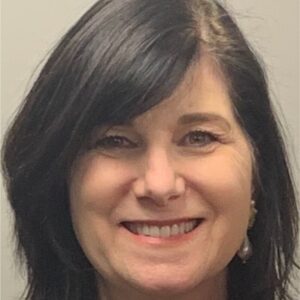NPHI’s New Clinical Guide Provides Tools to Navigate Complex Cancer Care
The National Partnership for Healthcare and Hospice Innovation (NPHI), the leading organization representing nonprofit, community-based hospice and advanced illness care providers, has released a new Clinical Guide for its member organizations. This guide builds on the success of the 2024 Advanced Cancer Care Patient & Caregiver Guide, which NPHI developed in collaboration with the American Cancer Society. Designed as a valuable resource for senior care communities, the Clinical Guide offers expanded support and guidance for advanced illness care.
Challenges in Caring for Residents Living with Cancer

Tom Koutsoumpas, Founder and CEO of the NPHI
Senior care communities encounter a range of complex challenges while supporting residents living with cancer. These include managing intricate healthcare systems, coordinating medications, addressing residents’ emotional and psychological needs, and navigating care goals for individuals with advanced or terminal conditions.
“Staff may also encounter difficulty accessing timely specialist support or engaging in sensitive conversations about prognosis and comfort-focused care,” explains Tom Koutsoumpas, founder and CEO of the NPHI. “These are exactly the kinds of barriers our Advanced Cancer Care Resources™ guide is designed to help address—bringing clarity, compassion, and practical tools into the everyday experience of caring for people with cancer.”
How the Clinical Guide Supports Senior Care Communities
The clinical guide was created to complement the patient and caregiver guide. It provides frontline providers with tools to manage advanced cancer symptoms, improve communication, and avoid unnecessary emergency room visits. It is ideal for nursing staff, medical directors, social workers, and any other professionals involved in residents’ daily care. “Facilities can incorporate it into team huddles, onboarding, or family care meetings, or even use it to guide interdisciplinary care planning. It’s a flexible, high-impact resource that supports dignity-centered, person-first care,” says Koutsoumpas.
The guide promotes more informed, coordinated, and compassionate care. “For senior care communities, that means fewer avoidable hospitalizations, better symptom control, and more empowered care teams,” Koutsoumpas explains. “It can strengthen staff confidence, improve communication with families, and ultimately enhance residents’ quality of life. It’s not just a resource—it’s a way to improve outcomes and reduce the stress that often accompanies complex cancer care.”
The value of the guide is already evident. NPHI has heard powerful stories from across the country, including an Ohio hospice nurse who used the guide to support a family in understanding their loved one’s cancer progression and build confidence in managing symptoms at home. Another story is that of an assisted living team in Colorado that used the guide to lead a care planning conversation between a resident, her family, and the staff. “These stories reinforce that the guide doesn’t just offer information—it builds trust, reduces fear, and brings humanity into care conversations,” says Koutsoumpas.
Future Plans for the Guides
While the Clinical Guide is available to NPHI members, the patient and caregiver guide is free and is available for download on the NPHI website. NPHI sees the guides as a living resource and has plans to update them in the future. “Cancer care continues to evolve, and so do the needs of patients and caregivers. We’re committed to regularly updating the content to reflect the latest best practices, real-world feedback from clinicians, and emerging patient needs,” Koutsoumpas explains. “We’re also exploring additional tools that could help support patients across other serious illness trajectories beyond cancer.”
The Clinical Guide was developed with input from over 100 organizations across the country, reflecting real-world expertise and a deep understanding of what patients living with cancer need. It’s a valuable support for senior living communities and caregivers, and it’s already helping senior care professionals deliver better quality care. “NPHI is deeply grateful for the dedication of those working in nursing homes, skilled nursing facilities, and senior care communities,” says Koutsoumpas. “They are the unsung heroes of advanced illness care, and this guide was created to help make their work just a bit easier, a bit more supported, and more connected to the people they serve.”

Paige Cerulli is a contributing writer to i Advance Senior Care.
Related Articles
Topics: Business Marketing Including Social Media and CRM , Communication , Facility management , Featured Articles , Operations












